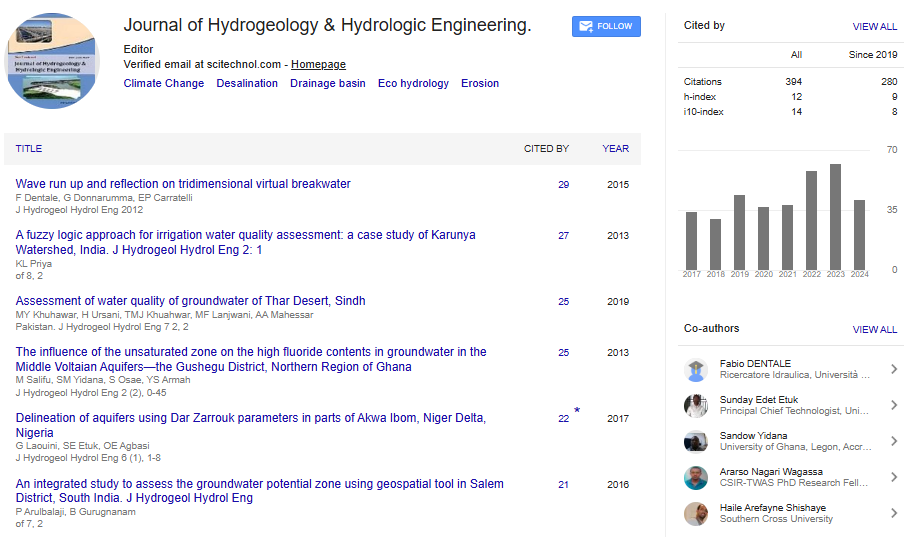Editorial, J Hydrogeol Hydrol Eng Vol: 0 Issue: 0
Should Dispersants be Used to Alleviate the Impact of a Marine Oil Spill?
| David Steffy* |
| Jacksonville State University, USA |
| Corresponding author : David Steffy PhD, Professor Department of Physical and Earth Sciences, Jacksonville State University, Jacksonville, Alabama, USA E-mail: dsteffy@jsu.edu |
| Received: June 12, 2012 Accepted: June 13, 2012 Published: June 15, 2012 doi:10.4172/2325-9647.1000e101 |
| Citation: Steffy D, (2012) Should Dispersants be Used to Alleviate the Impact of a Marine Oil Spill?. J Hydrogeol Hydrol Eng 1:1 doi:10.4172/jhhe.1000e101 |
Abstract
Should Dispersants be Used to Alleviate the Impact of a Marine Oil Spill?
Should dispersants be sprayed on an oil spill to relieve the impact of the spill on an aquatic environment? The major release of crude oil to the Gulf of Mexico during the summer of 2010 caused the reemergence of this controversy. Between April 20 and July 15, 2010, approximately 686,000 metric tons of crude oil was accidently released from the British Petroleum (BP) Deep Horizon well located in the Gulf of Mexico. The damaged well head released between 1,670 to 2,670 metric tons of crude oil per day. BP sprayed over 4,670 metric tons of chemical dispersants on the sea surface and injected 2,600 metric tons at the well head to alleviate the spread of crude oil slicks in the Gulf of Mexico.
 Spanish
Spanish  Chinese
Chinese  Russian
Russian  German
German  French
French  Japanese
Japanese  Portuguese
Portuguese  Hindi
Hindi 
